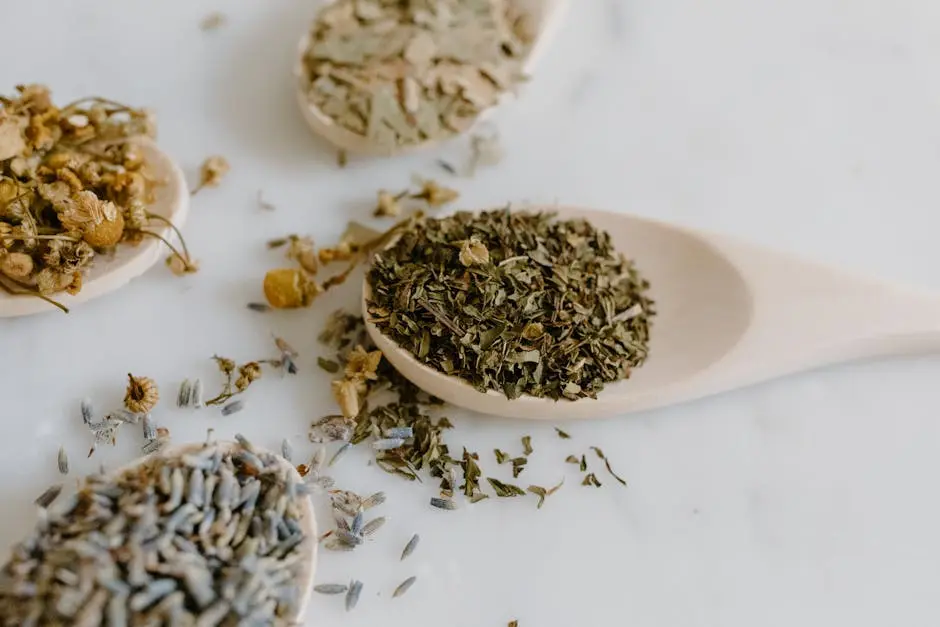In recent years, clinical herbalism has gained recognition as a viable complementary approach to health and wellness. With a rich history rooted in ancient traditions, herbal remedies offer a natural alternative for managing various health conditions. In this blog post, we will explore some common conditions that can benefit from the therapeutic use of herbs, showcasing the potential of clinical herbalism in promoting overall well-being.
1. Managing Stress and Anxiety Naturally
Stress and anxiety are common issues many people face today, often stemming from fast-paced lifestyles and mounting responsibilities. Clinical herbalism offers a natural approach to alleviating these feelings, utilizing herbs such as chamomile and ashwagandha. Chamomile, for instance, is widely recognized for its calming properties, making it an excellent bedtime tea to unwind after a long day. Meanwhile, ashwagandha, known as an adaptogen, may help the body better manage stress responses by balancing cortisol levels. Incorporating these natural remedies into your daily routine can provide a sense of calm and well-being.
Additionally, other herbs like lavender and passionflower have shown promising results in reducing anxiety symptoms. Lavender essential oil, when used in aromatherapy, can create an atmosphere of tranquility, promoting mental clarity and reducing tension. On the other hand, passionflower may enhance sleep quality, allowing your mind to rest more deeply. By exploring various herbal options, you can find the combination that resonates with you, creating a personalized strategy for managing stress and anxiety.
2. Enhancing Digestive Health
Digestive health plays a vital role in overall well-being, yet many individuals experience issues such as bloating, constipation, or indigestion. Clinical herbalism can offer valuable support to the digestive system, with herbs like ginger and peppermint showing great efficacy. Ginger, for its part, is not only a delicious culinary spice, but it is also well-known for easing nausea and engaging digestive processes. A warm cup of ginger tea can serve as a comforting remedy after a heavy meal.
Peppermint, another fantastic digestive aid, has antispasmodic properties that can help relieve symptoms related to irritable bowel syndrome (IBS). The essential oil derived from peppermint can also be applied topically to the abdomen, providing immediate relief from discomfort. With clinical herbalism, you can explore these natural solutions and develop a supportive routine that fosters a healthier digestive system.
3. Supporting Immune Function
In order to maintain optimal health, it is crucial to support a well-functioning immune system. Clinical herbalism offers an array of herbs that promote immune function, with elderberry and echinacea at the forefront. Elderberry syrup can serve as a seasonal protector against colds and flu, renowned for its antiviral properties. Integrating elderberry into your wellness regimen can noticeably enhance your body’s defenses.
Echinacea, often taken in capsule form or as a tincture, is another powerhouse herb for immune support. It has been shown to reduce the severity and duration of respiratory infections, making it an excellent option during cold and flu season. By embracing these herbal allies, you can nurture your immune health and safeguard yourself against seasonal ailments.
4. Alleviating Allergies and Respiratory Issues
Seasonal allergies can be a significant discomfort for many individuals, causing symptoms like congestion, sneezing, and itchy eyes. Fortunately, clinical herbalism can provide relief for these common issues. Nettle, for instance, is a powerful antihistamine that may help reduce allergy symptoms when taken in tea or capsule form. Its natural properties can assist the body in managing allergic reactions without the side effects often associated with conventional medications.
In addition to nettle, herbs like butterbur have also shown effectiveness in alleviating allergic rhinitis, providing a natural alternative for those looking to reduce their reliance on over-the-counter medications. Furthermore, respiratory issues can benefit from herbal support as well; mullein leaf is known for its soothing effects on the bronchial passages, making it an excellent choice for those suffering from coughs or asthma. By incorporating these potent herbs, you can take steps toward smoother breathing and a more comfortable allergy season.
5. Promoting Better Sleep Quality
Sleep is essential for overall health, yet many struggle to achieve restorative rest. Clinical herbalism offers a variety of herbs designed to promote better sleep quality, with valerian and passionflower being two popular options. Valerian root is well-known for its sedative properties, often taken before bedtime to help ease the mind and prepare the body for sleep. Creating a calming bedtime ritual with valerian tea can pave the way for a peaceful night’s rest.
Passionflower, on the other hand, can reduce anxiety levels while improving sleep quality, allowing you to drift off more easily. This gentle herb can be consumed in tea form or taken as a supplement, making it accessible for various preferences. By exploring these natural sleep aids, you can reclaim your nights and wake up refreshed.
6. Relieving Pain and Inflammation
Chronic pain and inflammation can significantly impact daily life, and many individuals are searching for alternative ways to find relief. Clinical herbalism offers a variety of potent herbs that can help alleviate these concerns. Turmeric, celebrated for its anti-inflammatory properties, is often recommended for those experiencing joint pain or arthritis. Incorporating turmeric into your diet, whether in food or as a supplement, can provide relief from discomfort and support joint health.
Another powerful herb to consider is ginger, known for its natural analgesic effects. Adding fresh ginger to smoothies or hot beverages can help combat inflammation and ease pain. Additionally, willow bark is often referred to as
7. Supporting Heart Health
Heart health is paramount for overall wellness, and certain herbs can help support cardiovascular function. Clinical herbalism highlights the benefits of hawthorn and garlic, both celebrated for their heart-healthy properties. Hawthorn is particularly noted for its ability to improve blood circulation and regulate heart rhythms. Consuming hawthorn in capsule form or as a tea can boost heart health over time.
Garlic, celebrated not just as a culinary staple but also for its numerous health benefits, can assist in lowering cholesterol levels and regulating blood pressure. Incorporating fresh garlic into your meals can yield significant heart health benefits without the need for pharmaceuticals. By exploring these natural remedies, you can take proactive steps toward maintaining a healthy heart.
8. Regulating Blood Sugar Levels
For individuals managing diabetes or those looking to maintain healthy blood sugar levels, clinical herbalism offers supportive options. Herbs like cinnamon and bitter melon have shown potential in helping regulate blood sugar levels naturally. Cinnamon, a common spice found in many kitchens, can enhance insulin sensitivity and reduce fasting blood sugar levels when consumed regularly. Simply sprinkling cinnamon on oatmeal or incorporating it into smoothies can lead to delicious blood sugar management.
Bitter melon, on the other hand, is often used in traditional medicine for its ability to lower blood sugar levels. Available in supplement form or juices, bitter melon could serve as a useful addition for those looking to manage their insulin levels. By educating yourself on these powerful herbs, you can find a supportive path to stabilize blood sugar levels naturally.
9. Promoting Skin Health and Healing
Skin health is a reflection of overall well-being, and clinical herbalism provides various options to enhance and heal the skin. Herbs such as calendula and tea tree oil are excellent for promoting skin recovery. Calendula, known for its anti-inflammatory and antiseptic properties, can be used in creams or salves to soothe wounds and minor burns. Regular use of calendula can encourage skin healing while providing natural moisture.
Tea tree oil, renowned for its antibacterial properties, acts as a powerful treatment for acne and other skin conditions. When diluted with a carrier oil, tea tree oil can clear blemishes without harsh chemicals. By harnessing the healing power of these herbs, you can cultivate a healthier, more radiant complexion.
10. Boosting Energy and Reducing Fatigue
Fatigue can be a debilitating concern, leaving individuals feeling drained and unfocused. Fortunately, clinical herbalism offers herbal solutions for those seeking to boost energy levels naturally. Adaptogenic herbs like rhodiola and ginseng provide excellent support for increasing stamina and vitality. Rhodiola, in particular, is known for its ability to improve physical endurance and cognitive function, making it ideal for those facing both mental and physical fatigue.
Ginseng, another well-known adaptogen, can offer a revitalizing effect, helping the body cope with stress and enhancing overall energy levels. By integrating these powerful herbs into your daily routine, you can combat fatigue and set the stage for increased productivity and well-being.

